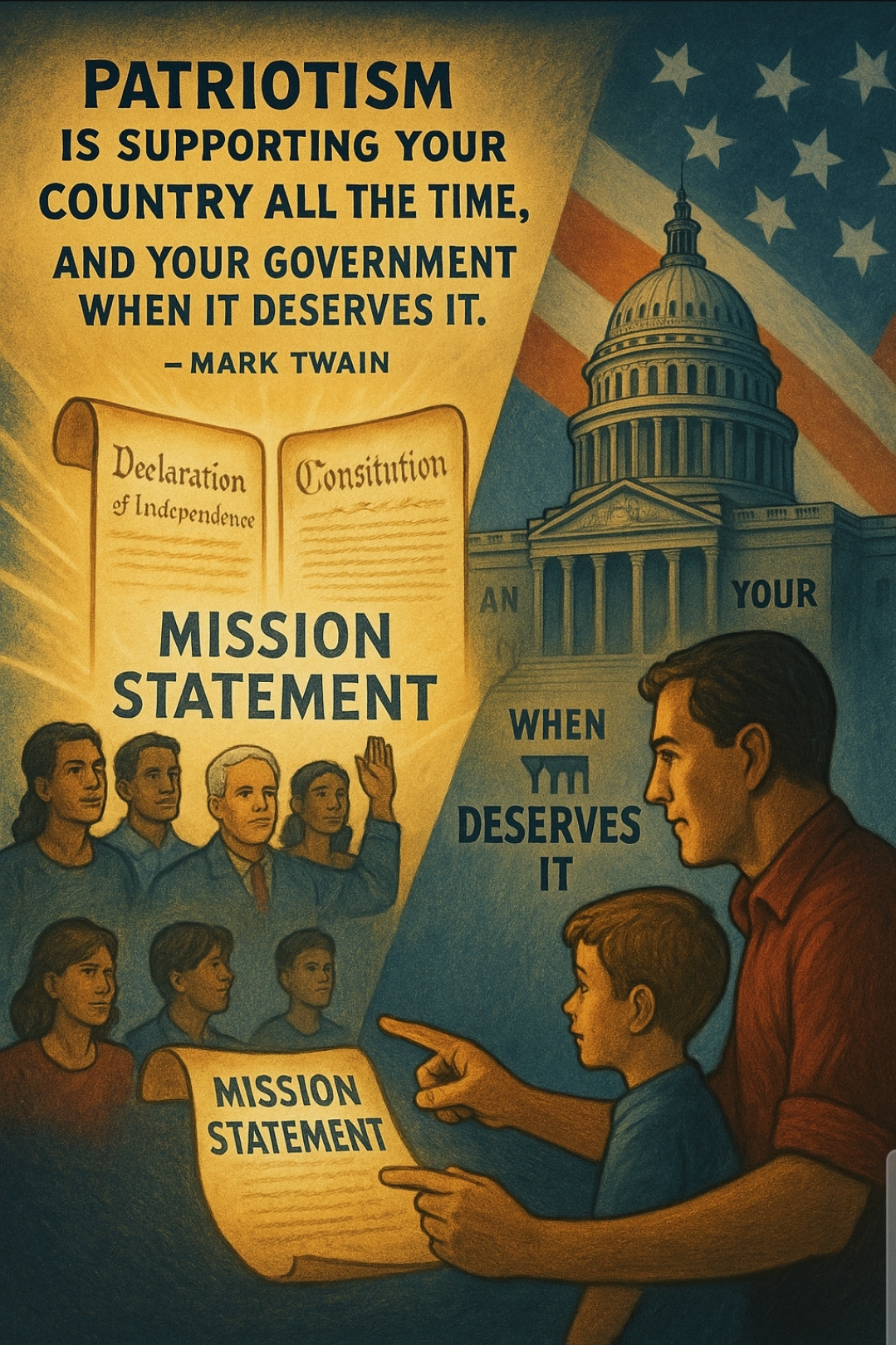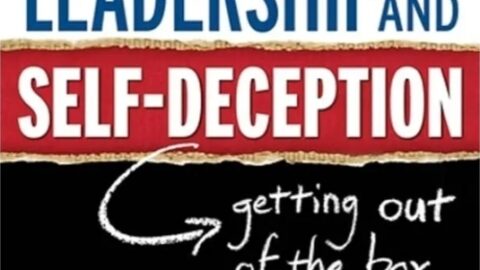“Patriotism is supporting your country all the time, and your government when it deserves it.”
— Mark Twain
Introduction: The Twain Test of Patriotism
Mark Twain’s statement cuts through centuries of political confusion with sharp, simple logic. Patriotism, he says, is not blind loyalty to those in power; it’s a principled allegiance to the mission and ideals of your country—even when those temporarily entrusted with authority stray from the path. In America, this difference is not just philosophical—it’s foundational.
Country vs. Government: What’s the Difference?
The “Country”: Our Shared Mission Statement
- Country refers to the people, the land, and, most importantly, the foundational ideals expressed in the Declaration of Independence and Constitution.
- The “mission statement” of America is found in:
- The Declaration of Independence: Asserts the right to life, liberty, and the pursuit of happiness; that government exists to secure these rights; and that just powers are derived from the consent of the governed.
- The Constitution: Outlines limited government, checks and balances, enumerated rights, and the sovereignty of the people.
The “Government”: A Steward, Not a Master
- Government is simply the administrative body tasked with carrying out the country’s mission statement.
- Government is meant to be the servant of the people and the ideals—not their master.
- When government aligns with the mission statement, it is legitimate and deserves our support. When it deviates, criticism and correction are not just rights, but duties.
Why This Distinction Matters
Prevents Blind Obedience and Tyranny
- History shows that blind allegiance to government (rather than principle) leads to abuses of power and loss of liberty.
- Governments throughout history—from Rome to modern regimes—have demanded “patriotism” as unthinking obedience, often equating dissent with disloyalty. True American patriotism refuses this false equivalence.
Anchors Us to Enduring Principles
- Political parties, leaders, and governments change; the founding ideals endure.
- When society forgets the mission statement, government can drift into corruption, overreach, or lawlessness—sometimes even under the guise of “security” or “progress.”
Empowers “We the People”
- The ultimate guardians of freedom are not politicians but an informed and principled citizenry.
- The Declaration of Independence asserts: “Whenever any Form of Government becomes destructive of these ends, it is the Right of the People to alter or to abolish it.”
Teaching Children (and Adults) the Twain Distinction
Start with the Founding Documents
- Encourage children to read, discuss, and understand the Declaration of Independence and Constitution.
- Use stories and examples to show what these documents mean in practice—rights, responsibilities, limited government.
Teach the “Mission Statement” Analogy
- Compare America to a great company or team: the mission statement (our founding documents) comes before the managers (the government).
- If managers violate the mission, employees (citizens) have the right—and responsibility—to demand change.
Model Critical Patriotism
- Demonstrate respect for the nation’s ideals and institutions while also being willing to call out government actions that violate them.
- Show that true patriots are sometimes the critics, not just the cheerleaders.
Encourage Civil Engagement and Nullification
- Teach about the power of local and state action, jury nullification, peaceful protest, and civic participation to hold government accountable.
- Discuss historical examples: The abolitionists, the civil rights movement, whistleblowers—patriots who challenged government for failing its mission.
Nullifying Bad Government: An American Tradition
Constitutional Tools
- Federalism: States and localities have constitutional rights to resist federal overreach (10th Amendment).
- Jury Nullification: Juries can refuse to convict under unjust laws, serving as a check on government power.
- Peaceful Dissent: The First Amendment protects the right to petition, protest, and publish criticism of government.
Civic Education: Our Best Defense
- A society ignorant of its founding principles will lose them.
- Teach critical thinking, the ability to spot propaganda, and the courage to stand up for the Constitution and Declaration when government strays.
Conclusion: True Patriotism in Practice
Mark Twain’s distinction isn’t just witty—it’s essential. America’s strength is in her principles, not in her politicians. We must raise a generation that loves the country’s mission enough to demand that government live up to it. When government acts in harmony with the Declaration and Constitution, it deserves our support. When it betrays those ideals, true patriots must speak up, stand up, and—if necessary—nullify.
As Jefferson wrote, “The price of freedom is eternal vigilance.”
Let’s teach the Twain distinction, and raise Americans who know the difference.






